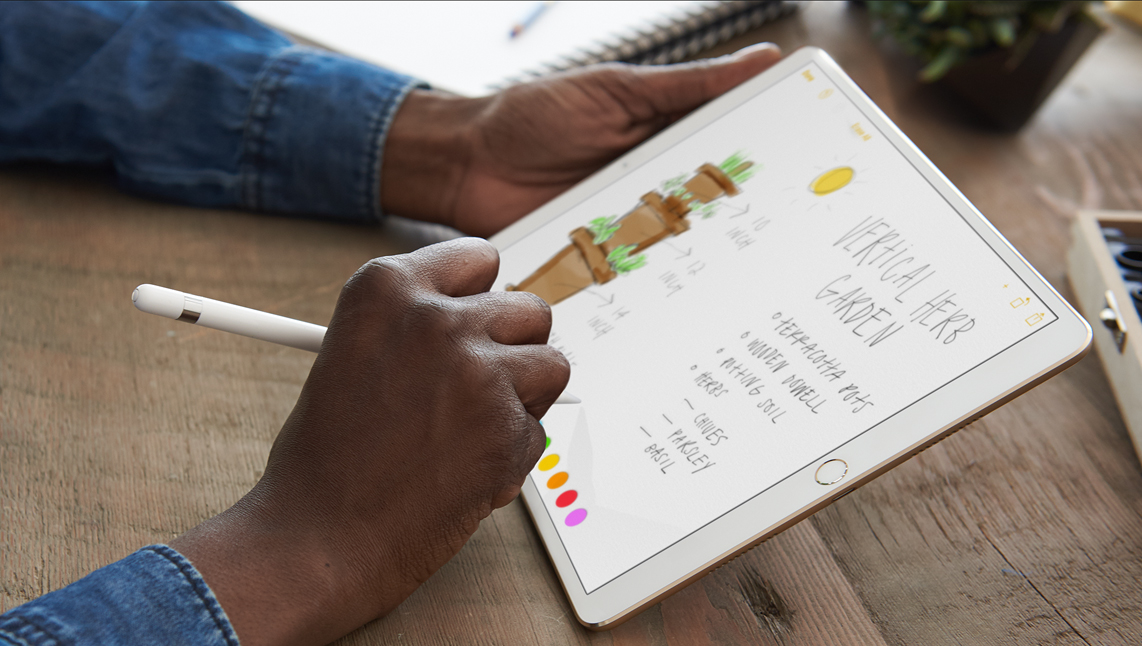Why I’ve fallen back in love with tablets
Don’t be so quick to dismiss the humble iPad — there’s life in the old dog yet


Whatever happened to tablets? After the iPad brought tablet computing to the mainstream in 2012, they seemed to be everywhere, with tech fans convinced that they'd herald a new revolution in computing. Five years on, however, and the tablet form-factor appears to be consigned to the scrap-heap of history, used only by grandparents and in-store kiosks.
Apple iPad Pro review
At least, that's what analysts and market-watchers would have you believe. Every quarter, the bell (in the form of Gartner's market forecasts) tolls for tablets, with sales figures continually shrinking and an inescapable collapse on the horizon. I sincerely hope those predictions are wrong. I've recently rediscovered the joys of the tablet form-factor and I've fallen in love with it all over again.
Like many people, as phones became more capable and more polished, I all but abandoned my tablet, opting to do everything on my smartphone instead. However, there's no getting away from the fact there's an awful lot of use-cases in which the tablet is superior not just to the phone, but to the laptop as well.
The biggest area where tablets shine is in little time-wasting games, which I've found myself playing while watching TV or waiting for the kettle to boil. The combination of large screens and a pick-up-and-play interaction model results in experiences that you just can't get on a smartphone.
Aside from the fun and games, though, the tablet has also been a big boon for work. An awful lot of my job involves tasks which are largely passive - going through my email inbox, reading news stories, editing documents and the like. Most of these don't involve long stretches of typing, and I've found it oddly freeing to do them with a tablet. Even the sveltest laptop is heavier than the iPad Pro, and not being shackled to a notebook means I'm free to do all the things I need to over coffee, or even just in a more comfortable chair.
Another reason that I've rediscovered how great tablets are is the tablet market has never been in a better position from a user's perspective. At the top end, Apple continues to destroy the competition with gorgeous, powerful devices, while those who don't want to drop more than 500 on a tablet have Amazon's excellent range of Fire slates to fall back on.
On top of that, the growth and maturing of the available software for tablet devices means that I can do pretty much everything I normally use my laptop for on my tablet, with very few exceptions. Tablets have been able to do pretty much everything for years, of course, but it no longer feels like a compromised experience compared to desktop.
Get the ITPro daily newsletter
Sign up today and you will receive a free copy of our Future Focus 2025 report - the leading guidance on AI, cybersecurity and other IT challenges as per 700+ senior executives
Gartner may tell you that tablets are on the way out, but don't you believe them. Sure, shipments might be low compared to smartphones, but that's because tablets last so much longer without showing their age. That might be a negative for companies like Apple and Samsung, but if my tablet can run for three years before it starts feeling outdated, then that's absolutely fine with me.
Whether or not the tablet really is doomed, it doesn't deserve to go out in obscurity and ignominy. It's a nifty little form-factor, with many uses and strengths. Don't believe me? Dig out your old iPad and use it for a week - you might just be pleasantly surprised.
Adam Shepherd has been a technology journalist since 2015, covering everything from cloud storage and security, to smartphones and servers. Over the course of his career, he’s seen the spread of 5G, the growing ubiquity of wireless devices, and the start of the connected revolution. He’s also been to more trade shows and technology conferences than he cares to count.
Adam is an avid follower of the latest hardware innovations, and he is never happier than when tinkering with complex network configurations, or exploring a new Linux distro. He was also previously a co-host on the ITPro Podcast, where he was often found ranting about his love of strange gadgets, his disdain for Windows Mobile, and everything in between.
You can find Adam tweeting about enterprise technology (or more often bad jokes) @AdamShepherUK.

